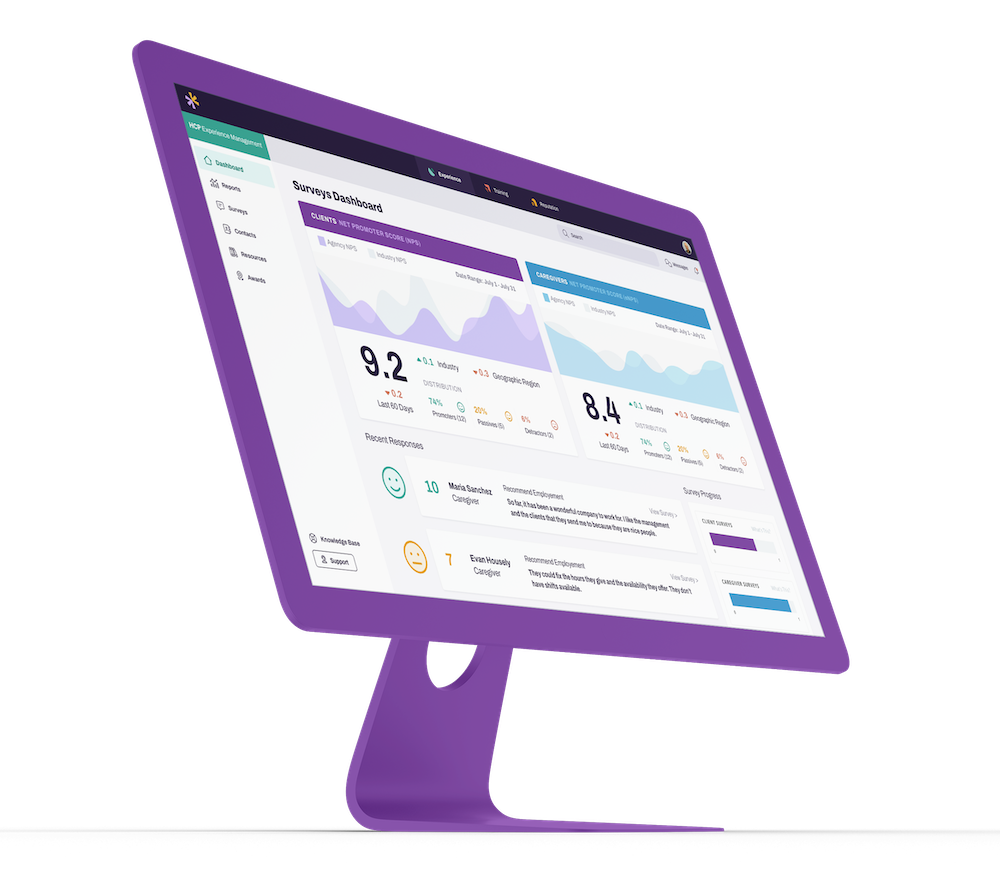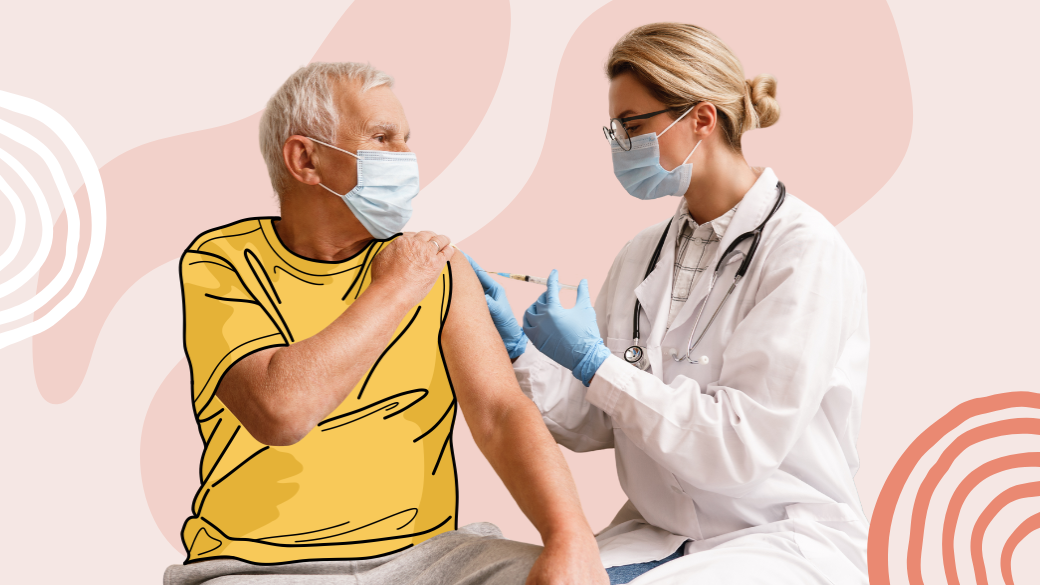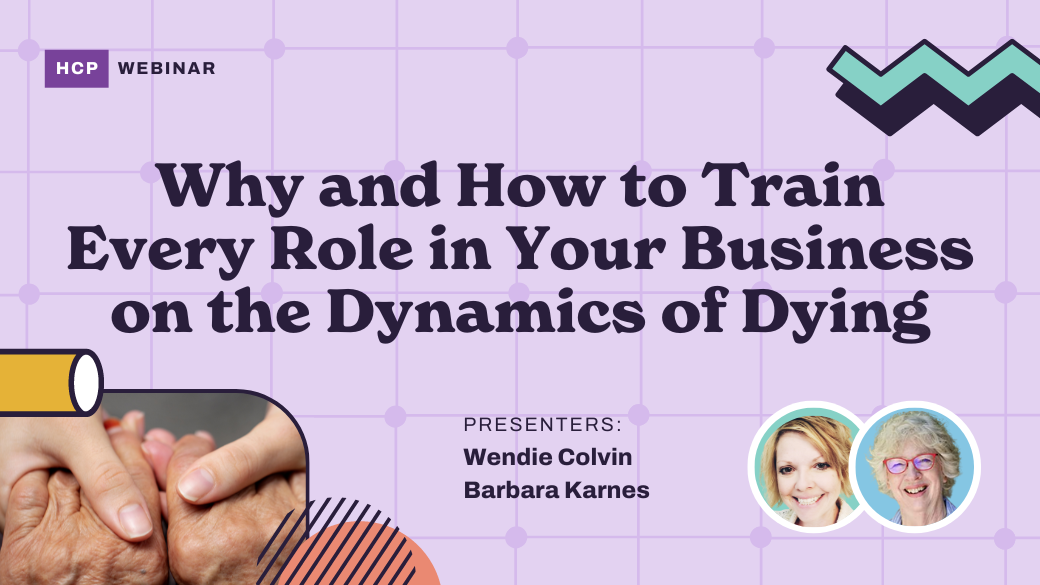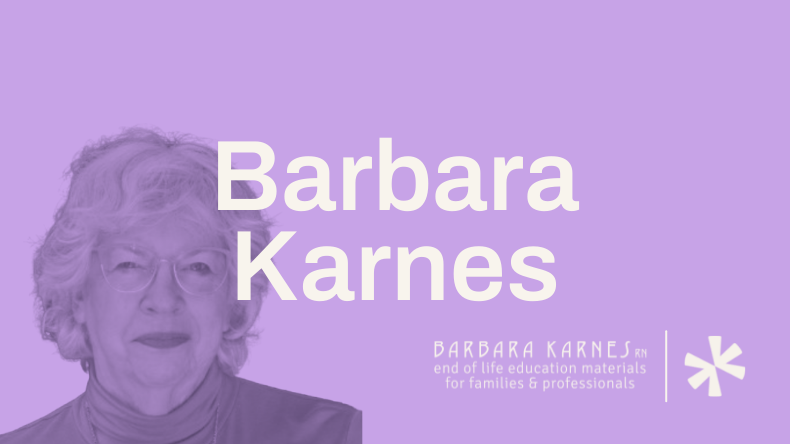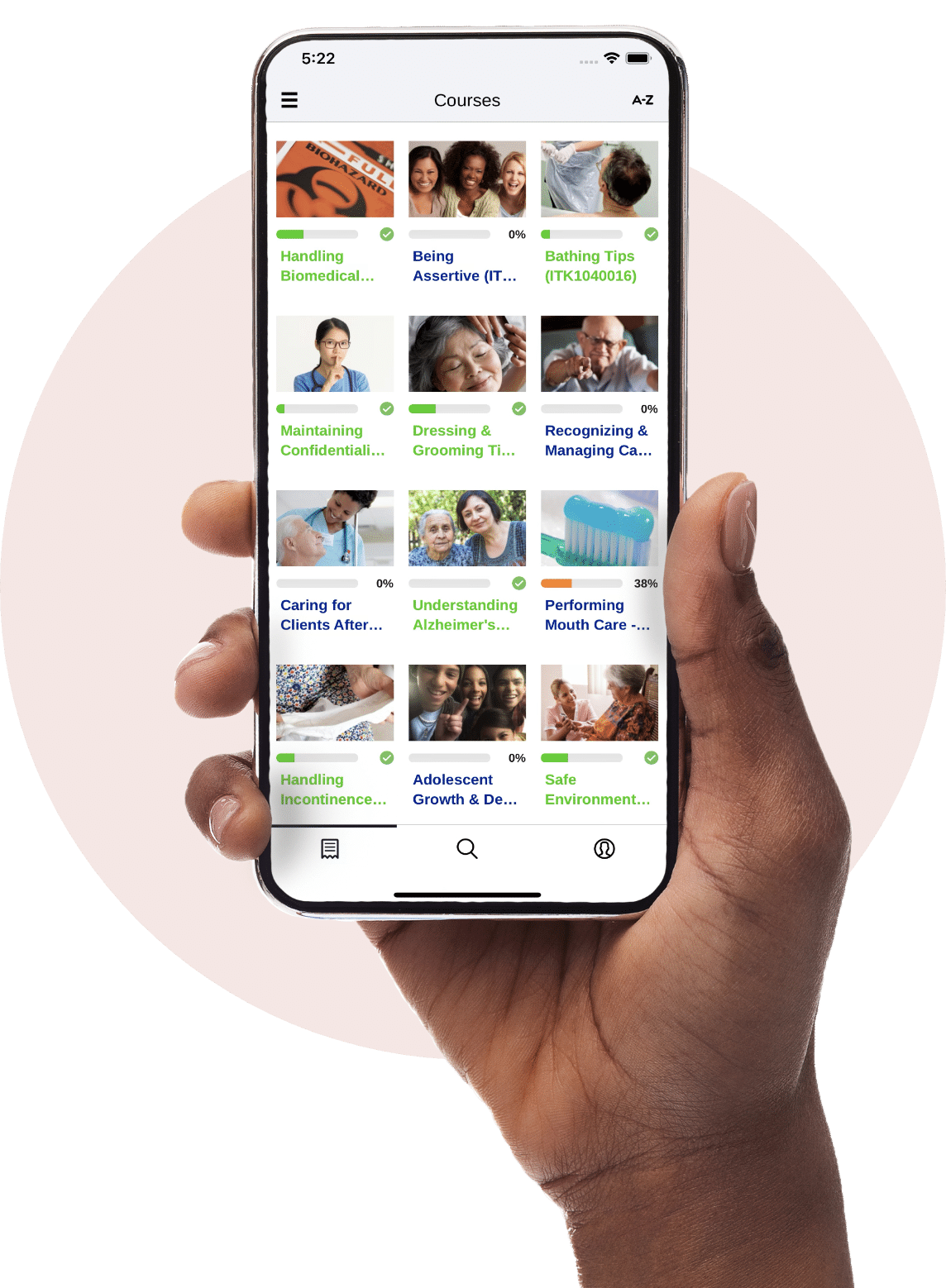
Get Exclusive Access to Barbara Karnes End-of-Life Courses
Hospice pioneer, Barbara Karnes, has selected HCP as the exclusive provider of online courses based on her library of renowned end-of-life materials.
90+ ANCC accredited clinician courses plus an adaptable library of 220+ courses to meet home health aide and family caregiver training needs.
Created by and for home health care teams.


Who is Barbara Karnes?
Barbara Karnes is an award-winning end-of-life educator, award-winning nurse, who won the NHPCO Hospice Innovator Award in 2018, and was the 2015 International Humanitarian Woman of the Year!
While at the bedside of hundreds of people during the dying process, Hospice Pioneer Barbara Karnes noticed that each death was following a near-identical script. Each person was going through the stages of death in almost the same manner, and most families came to her with similar questions. These realizations led Barbara to sit down and write Gone From My Sight, “The Little Blue Book” that changed the hospice industry.
An Essential Part of Your Training Program
This end-of-life care series is applicable to anyone involved in the care of people at the end of their lives. These courses offer guidance based on Barbara’s years working with terminally ill patients and their families.
These courses are just one series in an expansive library of courses offered through our full-service learning management system to help you build an effective and efficient training program. With HCP Training, you get access to 500+ RN-developed courses with blended online and in-service training options—tailored to your state’s compliance requirements.
End-of-Life Series Overview
Dynamics of Dying
Join Barbara for an eye-opening exploration of the dying process, including two distinct ways individuals reach death and how personality influences this journey.
What to expect:
- The Basic Timeline of the Dying Process
- The Labor of Dying
- Important Considerations
Supporting Patient Choices and Directives at End-of-Life
Learn how to understand and navigate advance care planning with Barbara as she describes how to empower clients to make end-of-life choices, while also mastering the practical application of laws and regulations.
What to expect:
- Advance Care Plans
- Supporting a Client’s End-of-Life Choices
- Laws and Regulations
- Supporting the Family during Funeral Planning
Physical Care at End-of-Life
Barbara demystifies the changes surrounding eating habits during the dying process and will help you understand their significance.
What to expect:
- Nutrition at End-of-Life
- Physical Comfort Measures
Communication Skills For End-of-Life Care
Master the art of communication in end-of-life care, as Barbara equips you with the skills to honor and support all individuals during this sensitive journey.
What to expect:
- Communication Approaches for End-of-Life Care
- Navigating Difficult Conversations
Pain at End-of-Life
Discover key insights with Barbara as she gives practical tips to enhance effective symptom relief for those experiencing pain at the end of life.
What to expect:
- Barriers of Pain Management
- Monitor and Managing Pain
Supporting Faith at End-of-Life
Explore the essential role that healthcare workers have in supporting an individual’s chosen faith or ideals during their unique end-of-life experience.
What to expect:
- Spirituality and Basic Beliefs
- Faith vs. No Faith at End-of-Life
- Your Role in Guiding and Supporting Chosen Beliefs
Free Resources from Barbara Karnes + HCP
Frequently Asked Questions
